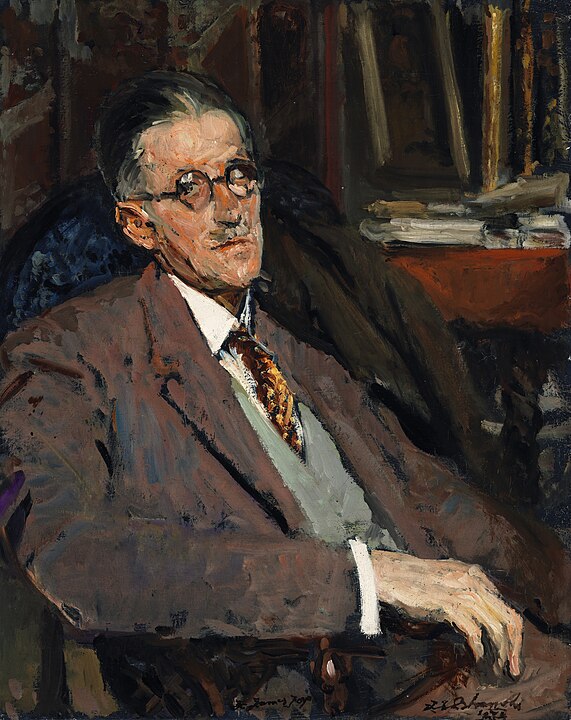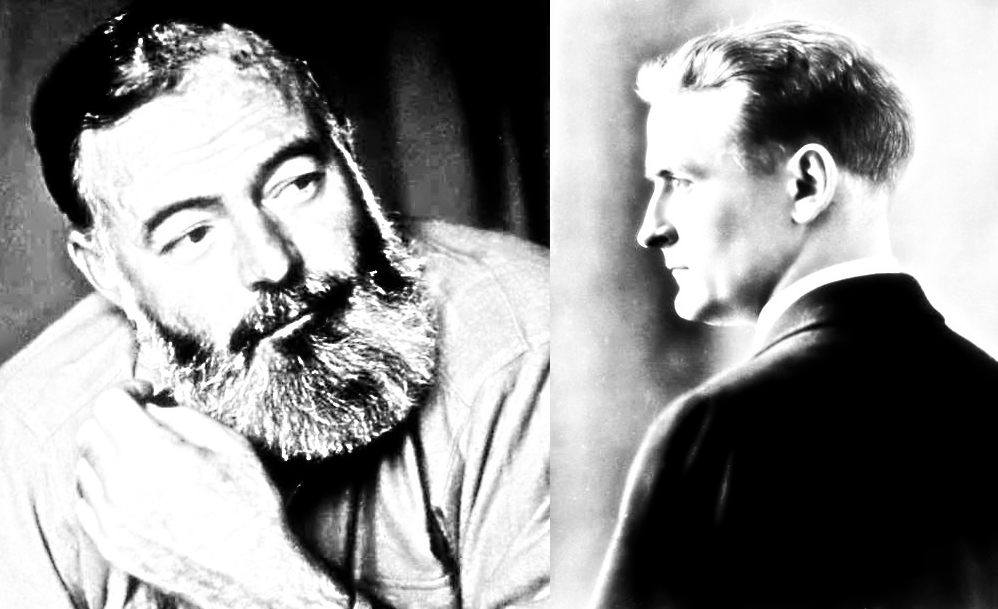Hank Morgan has gone from one of the most powerful people in the kingdom to somebody on the run, as his anachronistic language is frightening to most people outside of his close company. Today we see how Hank goes from captive to violent slayer of chivalry.
Also, today and tomorrow we finish A Connecticut Yankee in King Arthur’s Court. We have about ten chapters to get through in the next two days, so we have a way to go, but that’s so I can do a “Final Thoughts” post as the end of the month before we jump to the next novel study in October.
CHAPTER XXXIV. THE YANKEE AND THE KING SOLD AS SLAVES
In this chapter, Arthur and Hank take to flight after the hosts of their make-believe serfdom dinner become incensed at Hank’s nightmarish prognostications…at least the predictions he is making himself. They run from the maddened villagers and do battle with the group of them while up a tree and out on a branch. Eventually, they are taken prisoner by a man named Earl Grip and sold as slaves after a bit of trickery.
As Hank said in the most desperate moment after he and Arthur jumped down from the tree to meet the villagers. “I struck the ground an instant after him; we sprang to our appointed places, and began to give and take with all our might. The powwow and racket were prodigious; it was a tempest of riot and confusion and thick-falling blows” (Twain).
CHAPTER XXXV. A PITIFUL INCIDENT
Continuing, Hank and Arthur are stuck in a slave train and are apparently on their way to London. Arthur never loses his confidence and character in the face of slavery (being so petty as to be upset with how much he was sold for at auction).
Later, Hank sees a woman who is pursued by a mob and she is burned as a witch in front of the slave train to stave off the freezing cold–a heinousness that unsettles Hank greatly and grows his disdain for medieval society.
As Hank states of the violent slaver: he “lashed us into position about the stake and warmed us into life and commercial value by the same fire which took away the innocent life of that poor harmless mother” (Twain).
He also hear the tale of a woman who stole cloth for food and was sentenced to death because the courts could not go lightly on her crime (to avoid further copycats).
CHAPTER XXXVI. AN ENCOUNTER IN THE DARK
Afterward, Hank comes up with a plan of escape but continuously fails to do so. He fails to get a lockpick for a long time, until he finally gets the opportunity. However, as the time comes around for this to happen, the slaver moves far quicker through the room then expected.
Upon calling him back, Hank engages in a battle, but the fight is stopped by the night watch. He states that “I darted for it, threw myself upon it, and then there was a state of things and lively! We fought and scuffled and struggled, and drew a crowd in no time” (Twain). They are then hauled off to jail. It is then that Hank realizes that he attacked the wrong man.
CHAPTER XXXVII. AN AWFUL PREDICAMENT
After some deliberation, Hank is able to free himself from the court by lying and moves to contact Clarence–which he does. Clarence tell shim that he will send the requested knights, but it will take some time. Afterward, Hank is caught by the guard and is implicated by a slave. Hank knows he will be free soon, but realizes that the guard plan to hang all of the slaves that evening, as the slaver was murdered after he lashed out at the slaves. Hank loses hope of surviving the mess he has created.
He tells us: “My knights couldn’t arrive in time. They would be as much as three hours too late. Nothing in the world could save the King of England; nor me, which was more important. More important, not merely to me, but to the nation—the only nation on earth standing ready to blossom into civilization” (Twain).
CHAPTER XXXVIII. SIR LAUNCELOT AND KNIGHTS TO THE RESCUE
Finally, Hank and Arthur prepare to die as they are brought to the gallows. Arthur’s face is covered and the noose is dropped. Hank feels helpless and hopeless. Even as both he and Arthur attempted to convince the crowd of their high station in life, the crowd simply jeered and booed in disbelief.
Hank observes of the executions that “There was a jerk, and the slave hung dangling; dangling and hideously squirming, for his limbs were not tied. A second rope was unslung, in a moment another slave was dangling. In a minute a third slave was struggling in the air. It was dreadful. I turned away my head a moment, and when I turned back I missed the king! They were blindfolding him!” (Twain).
Nevertheless, at the last moment, Hank sees the knights from Camelot riding toward them–not on horses–but on bicycles. Clarence tells Hank that he was waiting for the perfect time to show off the knights’ new skills.
CHAPTER XXXIX. THE YANKEE’S FIGHT WITH THE KNIGHTS
Later, Hank is free from his enslavement, but realizes that he must face Sir Sagramore in a duel from an insult laid years ago. Sagramore arrives at the duel (in a tournament setting with plenty of onlookers) and wears his finest knightly armor and weapons. Hank emerges nearly naked and is laughed at. However, as the battle ensues, Hank uses cowboy skills to lasso the knight from his horse time and time again. Then, as other knights come to challenge him, he pulls them from their horses, too, making a mockery of the knights.
He states of the incident: ” When I had snaked five men out, things began to look serious to the ironclads, and they stopped and consulted together. As a result, they decided that it was time to waive etiquette and send their greatest and best against me. To the astonishment of that little world, I lassoed Sir Lamorak de Galis, and after him Sir Galahad” (Twain).
Finally, Merlin (still angry with Hank) steals his lasso. Hank, facing death, waits for the knight to ride him down, and then opens fire with his revolver, killing Sagramore instantly. Hank then challenges all the knights to a duel, and uses his pistols to put down many of them until they turn away and break. Rightly, Hank realizes that the knights are broken in spirit and reputation and he faces no further challenges or disrespect.
Conclusion
In context, we have a change in direction for the story and an ending around the corner. Arthur and Hank’s adventure comes to an end, but they have found everything necessary to understand life as a serf. There is–at every turn–a sort of violence pervading society, from the woman burned at the stake, to the woman who is executed for stealing for food, to the slaves and slaver, and even the knights who confront Hank at the end of the tournament.
This violence disgusts Hank and makes him all the more desperate to reform society. Even in his battle against the knights he still hates what hostilities exist in medieval society. As a reader, you can’t help but feel for Hank as he brutally murders a throng of knights with a pair of revolvers. Hank states: “Bang! One saddle empty. Bang! another one. Bang—bang, and I bagged two. Well, it was nip and tuck with us, and I knew it” (Twain). Soon, Hank comes to full blows with the entire country, but you get the sense here that the reform Hank wants (peaceful) may be far more difficult than even he could imagine.
Works Cited
Project Gutenberg. (n.d.). A Connecticut Yankee in King Arthur’s Court. The Project Gutenberg eBook of A Connecticut Yankee in King Arthur’s Court, by Mark Twain. https://www.gutenberg.org/files/86/86-h/86-h.htm








Leave a Reply